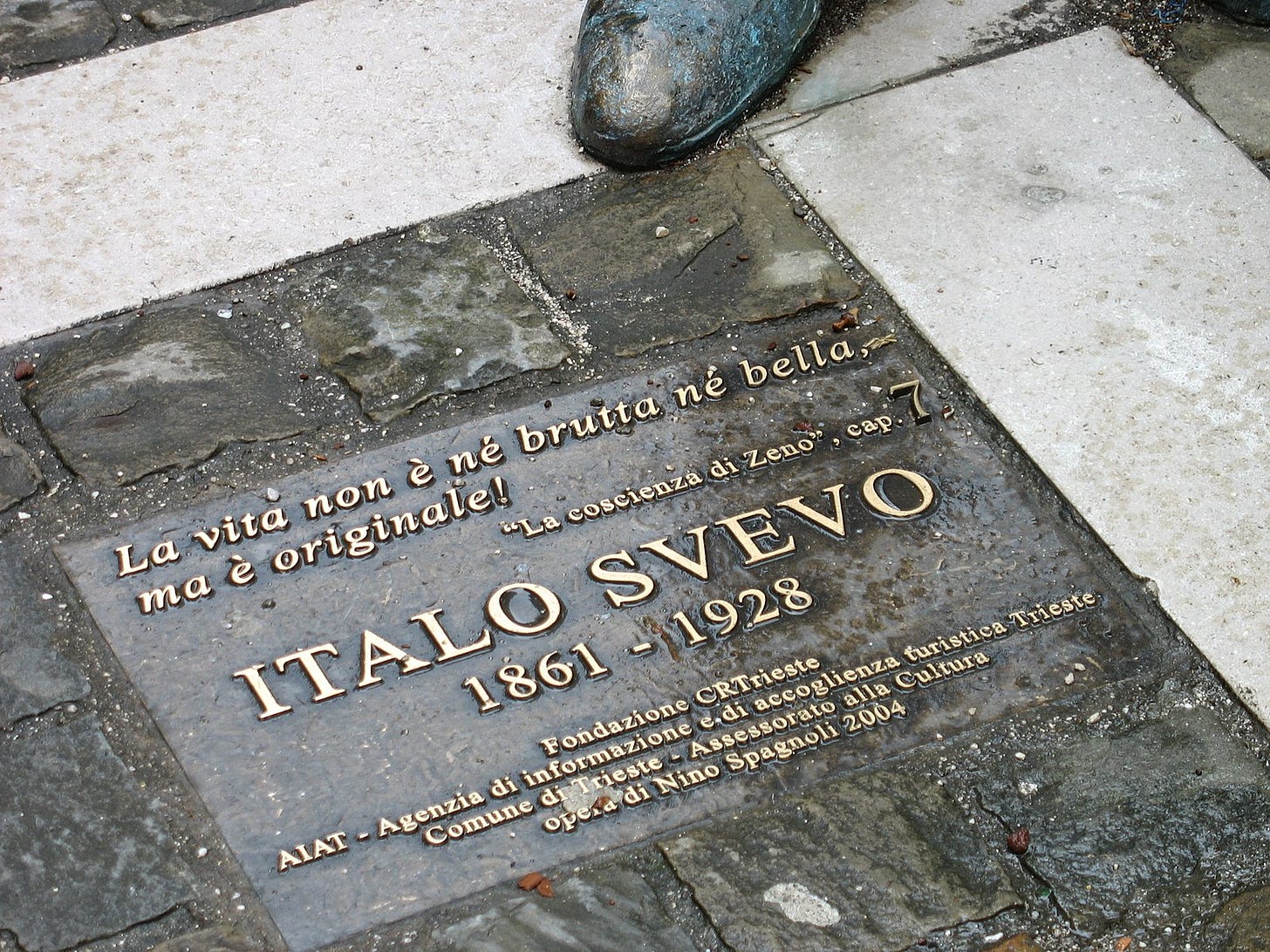Two Minor Modern Writers on Invention
Also: The letters of Basil Bunting, Seamus Heaney on dictionaries, and more.
Aron Ettore Schmitz, who wrote under the pseudonym Italo Svevo, lived at a time when Europe was still in flux. He was born in 1861 in Trieste, which was a free port of the Hapsburg Empire in the 18th century before it was annexed into Napoleon’s Illyrian Provinces from 1809 to 1813. It returned into the hands of what was then called the Austrian Empire in 1813 and the Austro-Hungarian Empire in 1867. At the end of WWI, it became part of Italy despite its sizable Slovenian population.
Svevo was born to a German father and an Italian mother. He spoke Triestine, which is an Italian dialect containing elements of German, Slovene, and Greek, and which is mostly unintelligible to other Italians. He attended boarding school in Germany and returned to Trieste and took a job in a bank. He began writing novels in Tuscan Italian, which he disliked, during his time at the bank, publishing Una Vita (A Life) in 1892 and Senilità (As a Man Grows Older) in 1898. Both were critical and commercial failures.
He gave up writing entirely until he met James Joyce in 1907, who was working as an English-language tutor for Berlitz in Trieste. Svevo took English lessons with Joyce ahead of a trip to England, where he would help open a new paint factory in London (he was then working for his father-in-law’s industrial paint business). Here’s Nathaniel Rich from his introduction to Svevo’s posthumous A Very Old Man:
Keep reading with a 7-day free trial
Subscribe to Prufrock to keep reading this post and get 7 days of free access to the full post archives.




